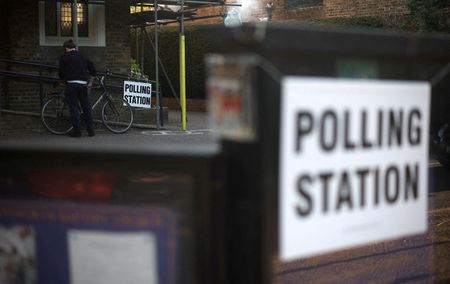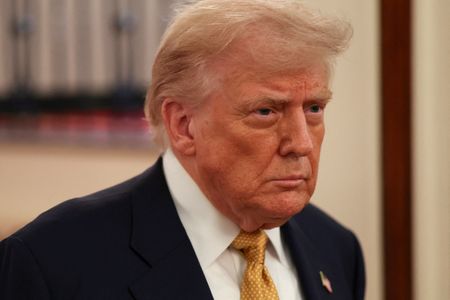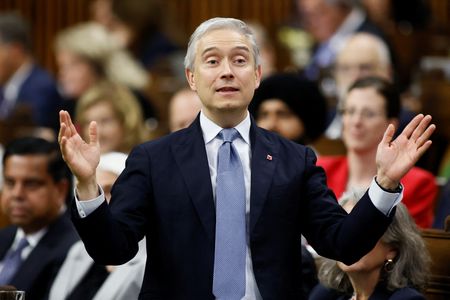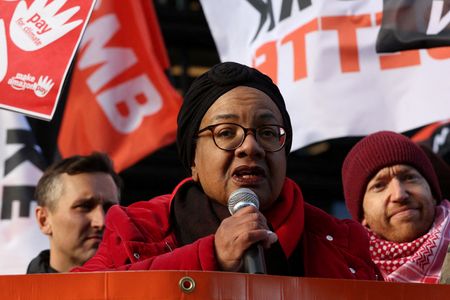By Vitalii Yalahuzian and Catarina Demony
LONDON (Reuters) -Sixteen and 17-year-olds celebrated their newly granted right to vote in all UK elections on Thursday, but cautioned that proper education was vital to boost turnout and protect young voters from political misinformation on social media.
“I’m really happy about it because I’ve always been kind of frustrated just watching politics and not being able to do anything,” said 16-year-old student Mathew Caronno, adding that many government policies directly impact young people.
In a major overhaul of the country’s democratic system, the government said the proposed changes were part of an effort to boost public trust in democracy and would align voting rights across Britain, where younger voters already participate in devolved elections in Scotland and Wales.
“A lot of people, even from a very young age, have very strong opinions, and they think their opinions should be heard,” Ana Fonseca, 16, said. “Even though we are young, it is important to have a say.”
Jess Garland, director of policy and research at the Electoral Reform Society, said lowering the voting age to 16 could have a long-term impact, as starting to vote earlier may increase the likelihood of continued participation in adulthood.
There are about 1.6 million 16 and 17-year-olds in the UK. Just over 48 million people were eligible to vote at the last election, in which turnout fell to its lowest since 2001. The next election is due in 2029.
“We know that democracy across the world… is in a bit of a bad place at the moment… and this is why vote at 16 is such a great opportunity to just start to turn the tide on that doom and gloom outlook,” Garland added.
Some young people, however, are concerned about to which side of the political spectrum the new voters might swing.
A poll of 500 16 and 17-year-olds conducted by Merlin Strategy for ITV News showed 33% said they would vote Labour, 20% would vote Reform, 18% would vote Green, 12% Liberal Democrats and 10% Conservative.
“All the right-leaning sources get pushed far more than the left-leaning ones (on social media),” Matilda Behrendt, a 17-year-old student, warned. “I think that will be a problem but it also means… various political ideologies can be spread and the ideas can be put across.”
Julian Gallie, head of research at pollsters Merlin Strategy, said political parties will need to further step up their social media efforts to engage voters under 18.
(Reporting by Vitalii Yalahuzian and Catarina Demony; Editing by Sharon Singleton)









